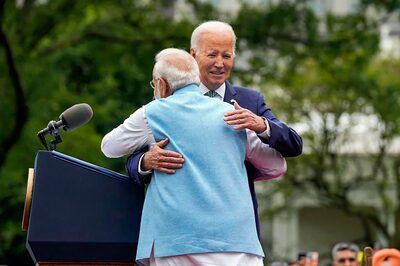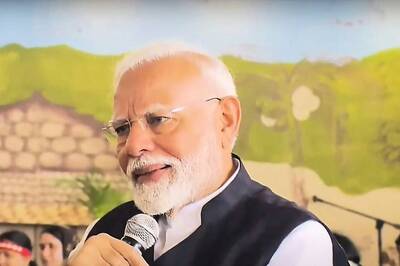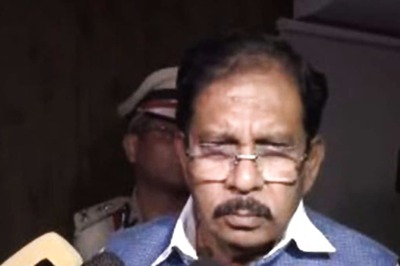
views
New Delhi: Every issue of our country has to be examined on the basis of how it affects the vast majority of the people of India. The vast majority consists of four social classes, namely, Scheduled Castes (SCs)—identified and listed on the basis of castes which have been over the centuries and still are subjected to 'untouchability' by the traditional social system of India, viz. Caste System—with 'untouchability', which not only consists of a number of humiliating and discriminatory practices against the people of such castes, but has also got very wide ramifications of economic, educational, social, housing-and-residence-related and health-and-nutrition-related deprivations imposed on the people of these castes.
Scheduled Tribes (STs)—identified and listed on the basis of distinct cultural identity as tribes, certain distinct characteristics, not belonging to the caste system, and remoteness of residence—all of which have their own wide ramifications of deprivations.
Socially and Educationally Backward Classes (SEdBCs)—identified on the basis of social backwardness, i.e., low status in the traditional caste system and often linked with a traditional occupation, which is considered to be low in social estimation. Also, Socially Advanced Castes (SACs), i.e., the non-SC, non-ST, non-SEdBC castes (NSCTBCs).
The first three are deprived classes that have been subjected to various forms of exploitation and deprivation. The form and degree of deprivation of each of these classes varies.
Together, they constitute 2/3rd to 3/4th of the population of India and contribute to the near-totality of the physical labour force of India.
There is another fundamental aspect to be kept in view. The Constitution of India mandates equality and justice. Equality includes ‘social equality’ and justice includes ‘social justice’. Social equality means equality of the SCs, STs and SEdBCs with the SACs in every parameter of development, welfare and life—economic, educational at every level, occupational, housing-and-residential facilities-related, health-and-nutrition-related, etc.
Social equality has to be achieved by undertaking comprehensive measures holistically for the SCs, STs and SEdBCs, viz., social justice measures. Every issue has to be considered from the point of view of whether it promotes the goal of reaching social equality as analysed above, and nothing which helps the achievement of the goal of social equality should be omitted.
Another fundamental issue is, unless the human resources of the entire population are fully developed and their fully developed capabilities are harnessed for the development of the nation, the nation and its economy cannot achieve optimal progress.
Caste narrows down one’s perception, vision and loyalty. A large modern nation and a caste-based society do not go together. They are mismatched. That is why Dr Babasaheb Ambedkar in his famous Address to the Constituent Assembly on the 25 November, 1949 said that “Caste is anti-national”.
In the recent advertisement of 10 posts of Joint Secretaries by direct recruitment, no reservation has been provided.
The scary picture of disaster for the country is the personal imagination of the ones looking to scrap reservations. There is no basis to an apocalyptic picture.
The country has been suffering from a disadvantage because a vast majority of people were prevented from developing their inner potential and from participating through their due presence in administration and governance, in the process of nation-building and national economic progress. This is what is to be corrected by the reservation policy as part of comprehensive social justice measures, including reservation in the promotion for SCs and STs.
(The author is Former Secretary to Government of India and has been working in the field of social justice for SCs, STs, BCs for the last six-and-a-half decades. Views expressed are personal.)




















Comments
0 comment